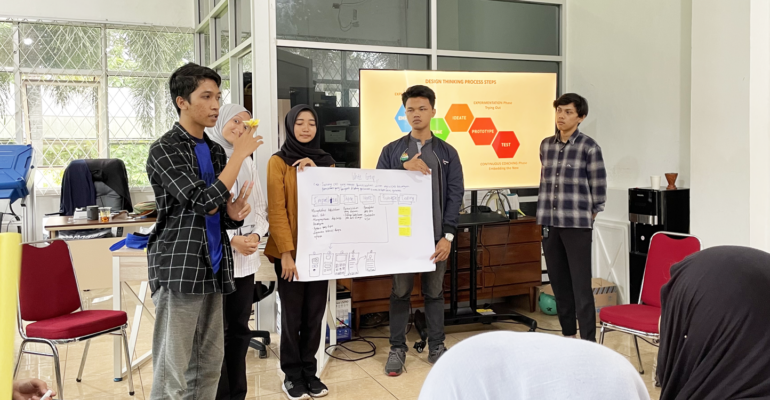Ready to Success Young Agripreneur Camp 2024, DPMA IPB University Provides Facilitator Debriefing

The Directorate of Agromaritime Community Development (DPMA) of IPB University held a briefing for facilitators of the Young Agripreneur Camp (YAC) program in 2024. The briefing was located at the Agribusiness and Technology Park (ATP), Saturday (25/5).
YAC is a program designed to prepare the younger generation, especially IPB University students, to be able to work through business development in agriculture at large. Through YAC, students will be equipped with knowledge and skills of cultivation from upstream to downstream.
The facilitators will later accompany YAC student participants during the activity. Starting from workshops from lecturers or experts, field projects with field practitioners, workshops, to project building presentations.
Previously, the selected facilitators had passed the administration and interview stages as a selection process. Some of them are alumni of YAC participants in previous years.
“A facilitator must be able to manage the activities that will take place while in the field and be able to maintain communication between the parties involved such as partners, participants, and organizers. Therefore, communication and program management skills are the basic things that must be owned by facilitators,” explained Dr Iqbal Irfany, Assistant Director of PMA IPB University in the field of Social Entrepreneurship.
On this occasion, the briefing delivered included the general concept of YAC 2024, the roles and responsibilities of a facilitator, and design thinking skills.
Supervisor of Social Entrepreneurship DPMA IPB University, Muhammad Isbayu also conveyed the things that need to be considered by a facilitator. “There is one main thing from the 7 habits that facilitators need to have, which is being able to listen to be heard. It sounds ordinary, but if you can have this, every activity that takes place will be easier to run”.
In the design thinking session guided by one of the DPMA IPB University staff, Akbar Hermawan, the facilitators were invited to think together about how a solution can be formed from existing problems. The stages that must be passed are empathize, define, ideate, prototype, and testing.
In addition to being delivered theoretically, facilitators are also given the opportunity to practice processing case studies that have been prepared from users. The main result is that each facilitator can apply each stage of design thinking in formulating solutions.
This briefing is considered important to be carried out as a preparation for facilitators in facing challenges during the field. Hopefully in the future, the facilitators can become sociopreneur community developers who are able to think critically and respond to every situation. (*/Rz) (IAAS/NYS)



